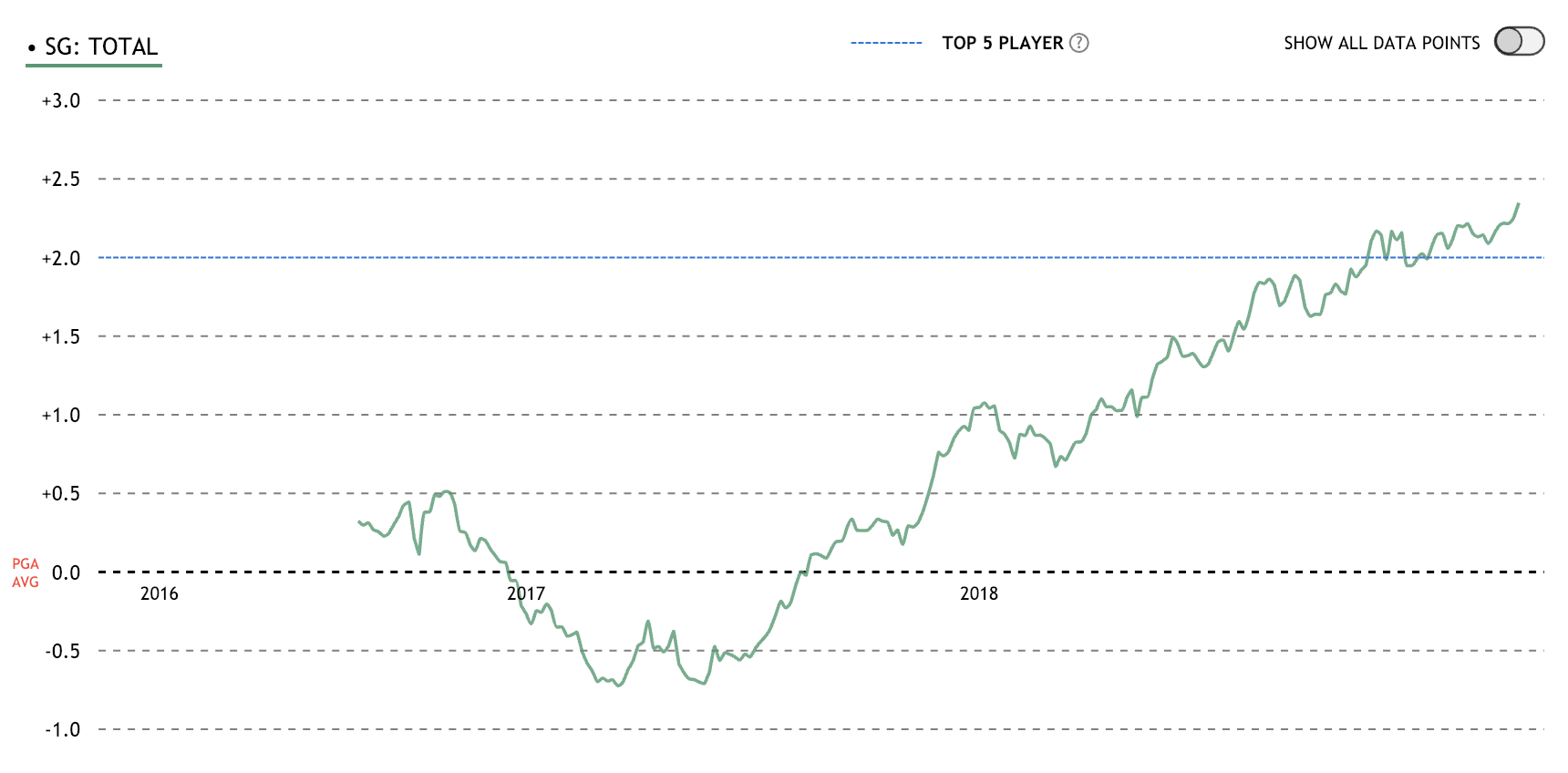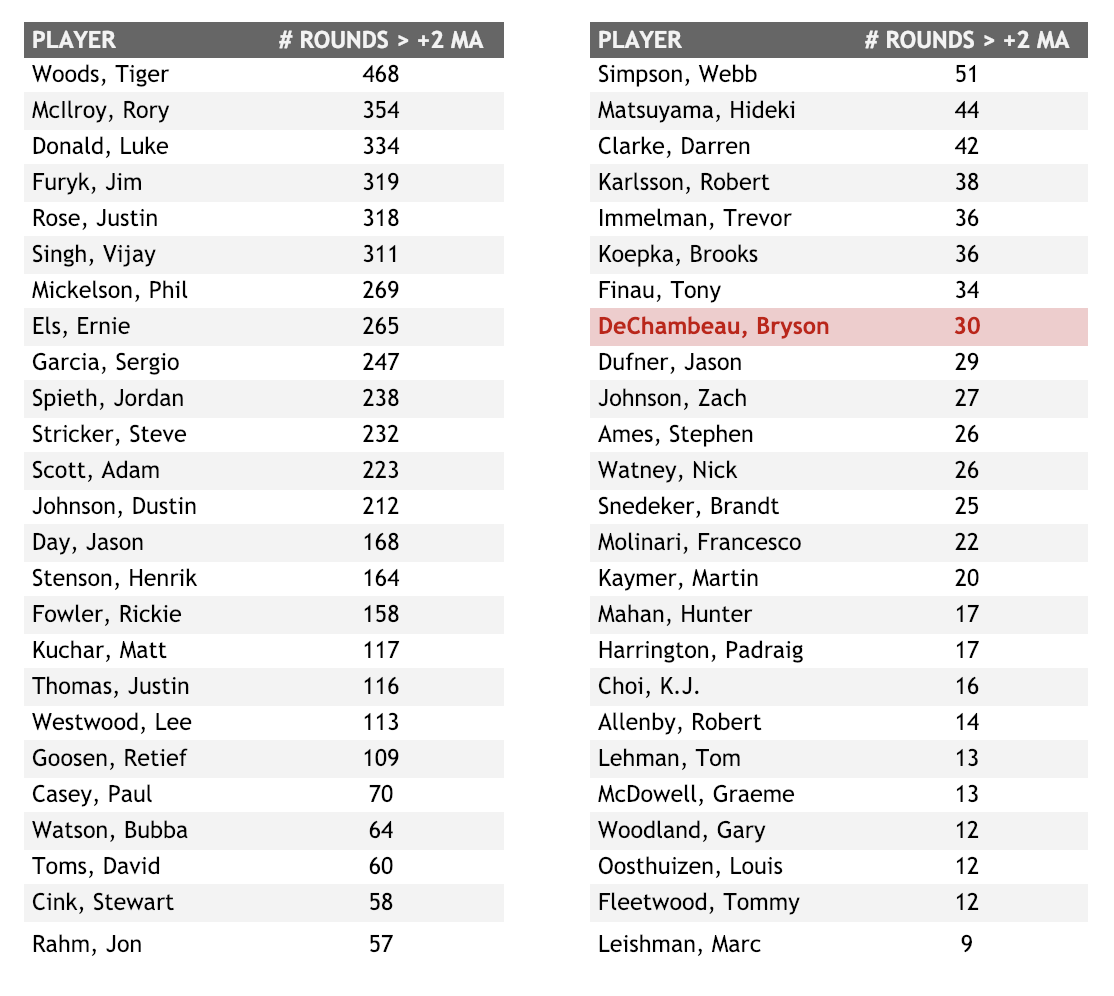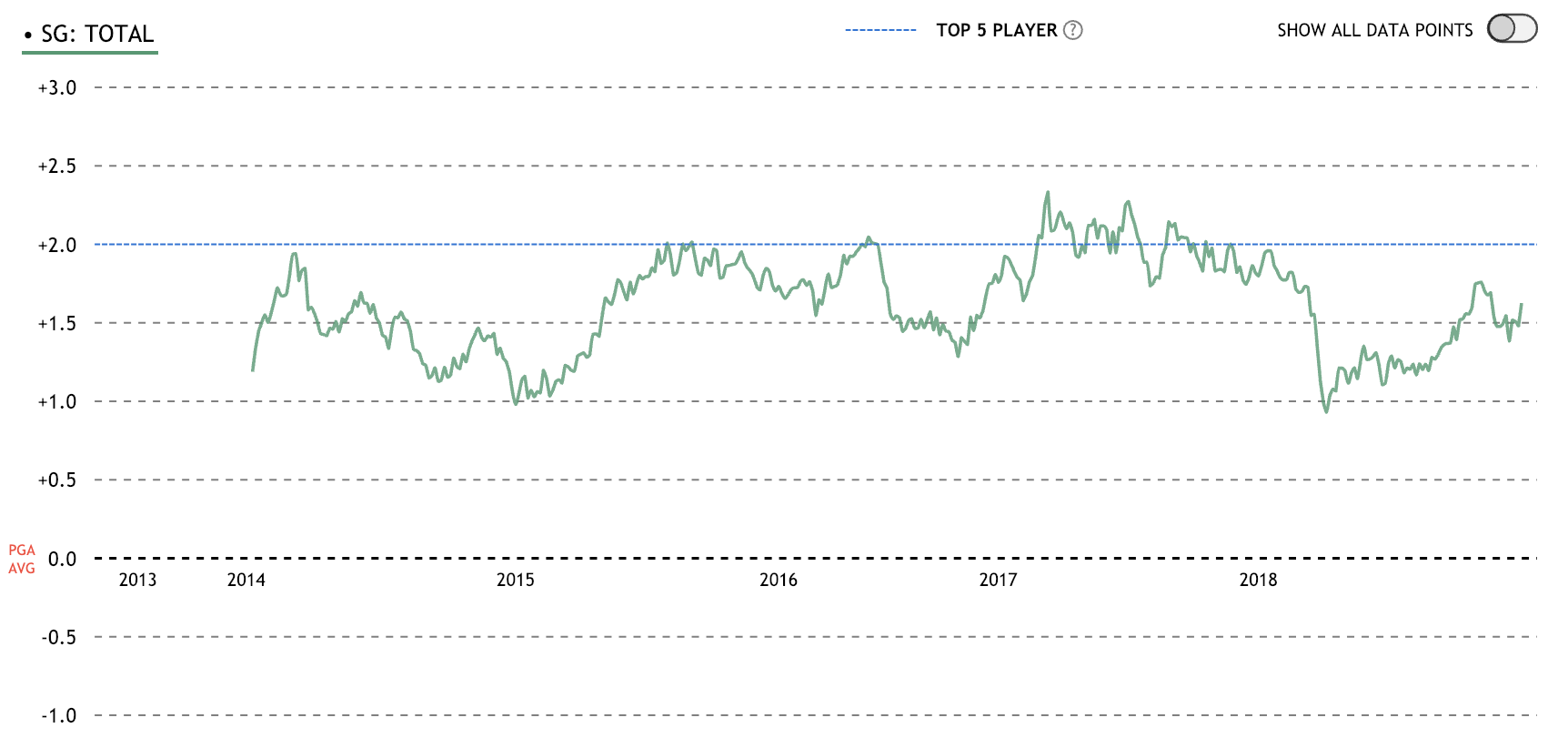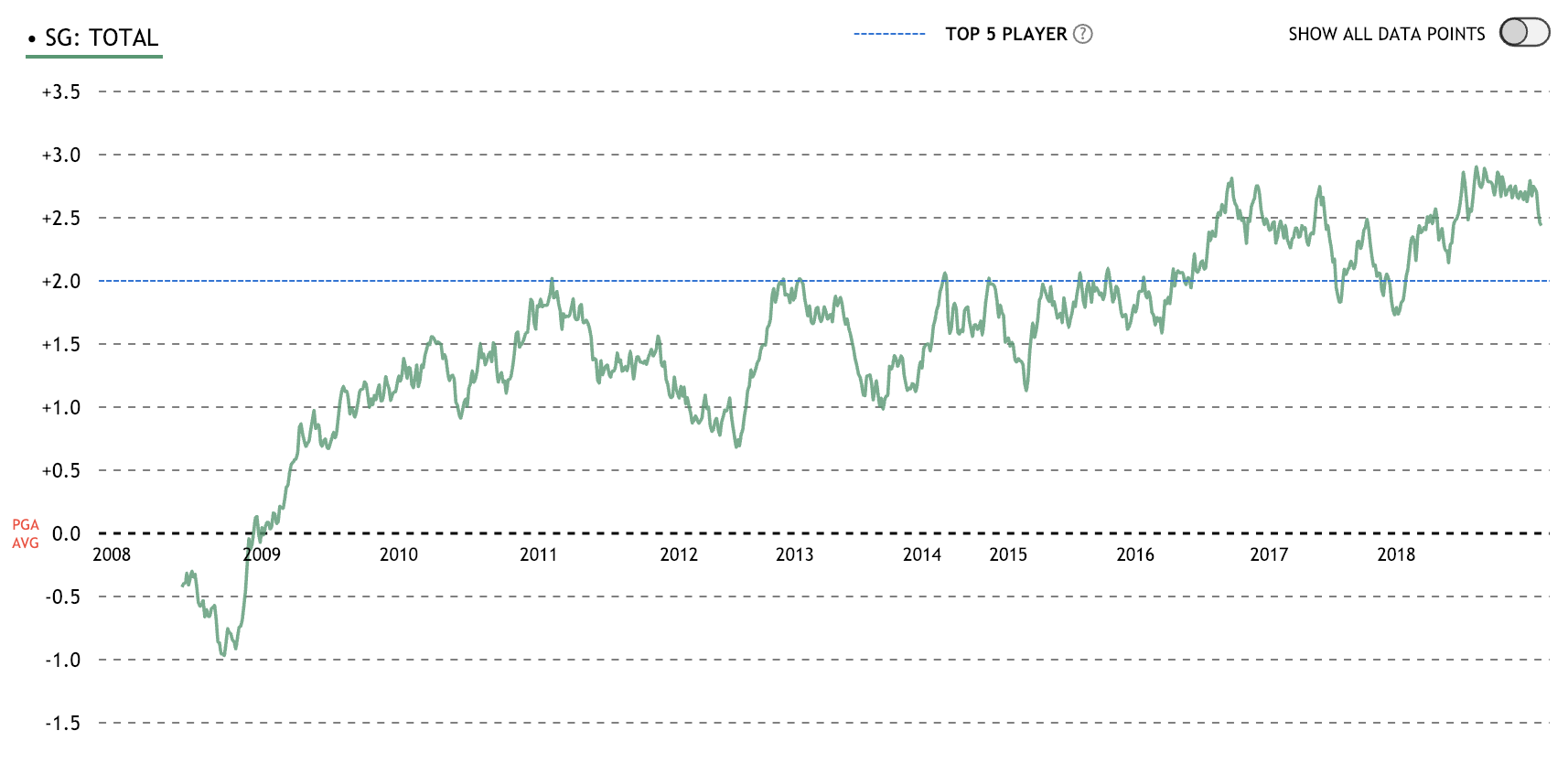• DG Betting Blog
After a week off, the betting blog is back! Remember you can track all of our model’s bets and the year-to-date performance here.
For a host of reasons, Bryson DeChambeau has been dominating headlines over the past few weeks. For everyone’s sake, we are going to skip over the trendy topics of his slow play and “scientific” approach to golf, and jump straight into his performance on the golf course. His recent success has catapulted him to the top of many power rankings, fantasy projections, and even betting markets (he is currently listed as the co-favourite to win alongside Justin Rose (!) at the Saudi International on Bet365).
There is no denying Bryson is playing great golf right now. His true strokes-gained (total strokes-gained, adjusted for field strength) has been trending upward since mid-2017, and his most recent 50-round average is a career best +2.35. Here is DeChambeau’s 50-round moving average since the start of his career:
For a host of reasons, Bryson DeChambeau has been dominating headlines over the past few weeks. For everyone’s sake, we are going to skip over the trendy topics of his slow play and “scientific” approach to golf, and jump straight into his performance on the golf course. His recent success has catapulted him to the top of many power rankings, fantasy projections, and even betting markets (he is currently listed as the co-favourite to win alongside Justin Rose (!) at the Saudi International on Bet365).
There is no denying Bryson is playing great golf right now. His true strokes-gained (total strokes-gained, adjusted for field strength) has been trending upward since mid-2017, and his most recent 50-round average is a career best +2.35. Here is DeChambeau’s 50-round moving average since the start of his career:
This has been an impressive climb, but it is important to put into the proper context. A natural question is then: how rare is it for a player to reach +2 strokes-gained over a 50-round stretch of golf?
In a sample of data stretching back to 2004, we found that of the 9023 players in our data who registered at least 50 rounds, 66, or 0.73%, reached +2 strokes-gained in a 50-round stretch at some point in their careers. Here are the 66 players along with the number of rounds they spent above the +2 strokes-gained benchmark (a round is counted if the golfer’s 50-round moving average on that date is 2 or better):
In a sample of data stretching back to 2004, we found that of the 9023 players in our data who registered at least 50 rounds, 66, or 0.73%, reached +2 strokes-gained in a 50-round stretch at some point in their careers. Here are the 66 players along with the number of rounds they spent above the +2 strokes-gained benchmark (a round is counted if the golfer’s 50-round moving average on that date is 2 or better):
In addition to the usual suspects, there are some remarkable names and numbers on this list (Luke Donald, anyone?). However, we want to focus on some of the names lower on this list. Alongside Bryson (at 30 rounds), there are some unexpected names: Jason Dufner, Robert Karlsson, and Darren Clarke, for example. None of these golfers are slouches, but they also weren’t exactly world beaters either. The point being made here is that there are many golfers who have stretches like DeChambeau’s current one, and not many of them remained at the top of the game.
You could definitely argue that because DeChambeau reached this performance level at just 25 years old it is more likely that he will have staying power at the top. A useful comparison is the career (so far) of Hideki Matsuyama:
You could definitely argue that because DeChambeau reached this performance level at just 25 years old it is more likely that he will have staying power at the top. A useful comparison is the career (so far) of Hideki Matsuyama:
A comparison to Matsuyama should be taken as a compliment, and if DeChambeau is able to follow a similar trajectory we would consider that a successful next 2-3 years.
Finally let’s look at DJ, who alongside Justin Rose has been one of the dominant players in the last 12 months:
Finally let’s look at DJ, who alongside Justin Rose has been one of the dominant players in the last 12 months:
The main takeaway here is that not only has Johnson reached the +2 true strokes-gained threshold, he has maintained that level of play for a full calendar year. This sustained performance is what is required to be among the game’s elite. As is always the case, we should make it clear that it’s possible DeChambeau is as good as, or even better than, the likes of DJ and Rose. But as these informal comparisons show, from a probability perspective, it is still not that likely.
To put some hard numbers down: our model estimates Justin Rose and Dustin Johnson to be 0.32 and 0.15 strokes, respectively, better than DeChambeau per round. This translates to weeklong win probabilities of just 42% and 45% for DeChambeau (with an ~4.5% chance of a tie).
To put some hard numbers down: our model estimates Justin Rose and Dustin Johnson to be 0.32 and 0.15 strokes, respectively, better than DeChambeau per round. This translates to weeklong win probabilities of just 42% and 45% for DeChambeau (with an ~4.5% chance of a tie).



